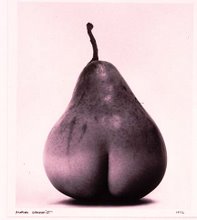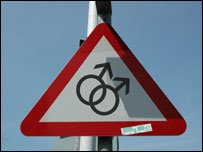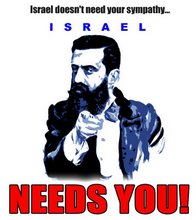Recently, there have been some Genocide denial stories in the news - specifically laws being proposed to forbid such denials.
Such as this story detailing the EU's far-reaching attempt at squashing denials.
In Germany, there are actually laws on the book that say its illegal to DENY the holocaust; though as europe as a whole (germany included) is moving to a more conservative stance this could change.I think perhaps the nations in which the genocides or attempted genocides in question occured perhaps should have laws similar to germany's....at least temporarily.In most european nations holocaust denial is actually illegal, and seen as stemming from some kind of neo-nazi agenda; but in France on both sides of the radical spectrum they seem to deny, or doubt the number murdered in the holocaust...but yeah, on the other side of the coin France is trying to pass laws that make denying the armenian genocide illegal....it could be a reaction to increased immigration from nations like turkey.
As for the freedom of speech thing....I think it stems from most of continental europe having a civil-law based system, as opposed to england's having a common law based system. Just different general political philosophies about freedom...the reason I'm actually cautious to actually criticize these types of laws is this:
Gregory H. Stanton, formerly of the US State Department and the founder of Genocide Watch, lists denial as the final stage of a genocide development: "Denial is the eighth stage that always follows a genocide. It is among the surest indicators of further genocidal massacres. The perpetrators of genocide dig up the mass graves, burn the bodies, try to cover up the evidence and intimidate the witnesses. They deny that they committed any crimes, and often blame what happened on the victims." http://en.wikipedia.org/wiki/Holocaust_denial
Now, Gregory H Stanton isn't just "some guy that founded a foundation"; he actually does have some academic authority in the area: he's been a law professor and has a phd in cultural anthropology; in addition to drafting the UN security council resolutions that created the International Criminal Tribunal for Rwanda and Cambodia.
It should also be noted that freedom of speech is not absolute. Incitment for example, is not protected; these include incitments to violence such as threats, or encouraging people to preform illegal acts. But, noteably, I think the philosophy that many of these genocide-denial laws come from is that liability and slander are not protected speech. Libel and slander defined as: a false statement, or one put into a context that makes the true statement misleading. So,here in the US at least, you can be prosecuted for lies that damage or defame the reputation of a person or organization as well as inciting violence. In this sense, I think these anti-denial laws are seen as an extention of slander and incitment. We have to remember that in europe when these laws were created, esp in germany, democracy was still fragile. Indeed, in Germany, they had just come out of an era of ethnic hosilities of massive proportions ; and cultural preceptions about jews and other minorities in didn't just change overnight - thus, justice for victims wasn't guaranteed - which yes, without anti-denial laws, could have easily lead to retaliation (by victims), and/or further victimization; which could have easily destabilized the fragile democracy that was just starting to revitalize itself in germany.





No comments:
Post a Comment